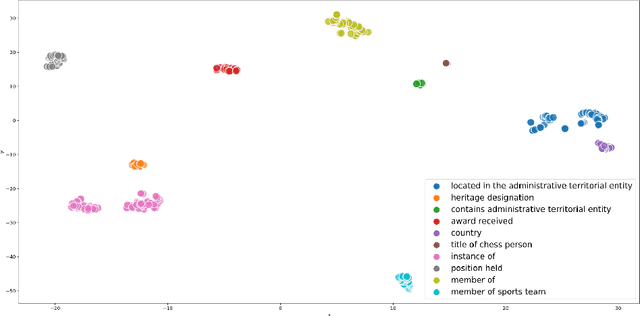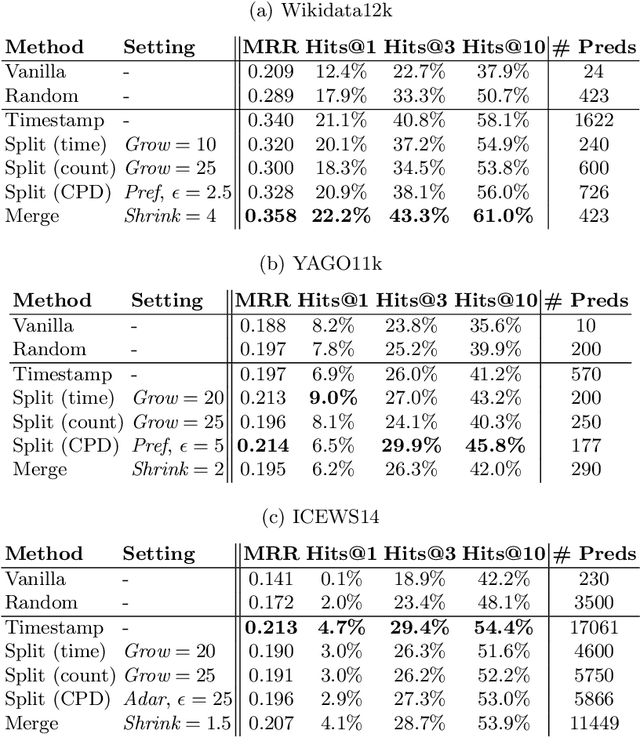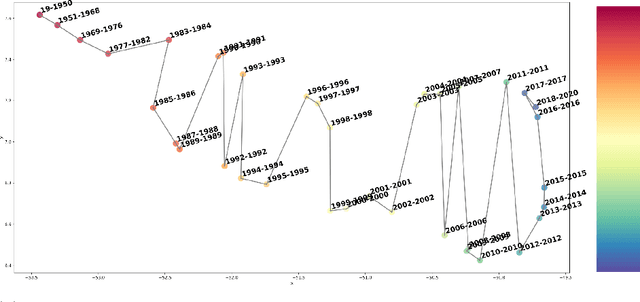Leveraging Static Models for Link Prediction in Temporal Knowledge Graphs
Paper and Code
Jun 29, 2021



The inclusion of temporal scopes of facts in knowledge graph embedding (KGE) presents significant opportunities for improving the resulting embeddings, and consequently for increased performance in downstream applications. Yet, little research effort has focussed on this area and much of the carried out research reports only marginally improved results compared to models trained without temporal scopes (static models). Furthermore, rather than leveraging existing work on static models, they introduce new models specific to temporal knowledge graphs. We propose a novel perspective that takes advantage of the power of existing static embedding models by focussing effort on manipulating the data instead. Our method, SpliMe, draws inspiration from the field of signal processing and early work in graph embedding. We show that SpliMe competes with or outperforms the current state of the art in temporal KGE. Additionally, we uncover issues with the procedure currently used to assess the performance of static models on temporal graphs and introduce two ways to counteract them.
 Add to Chrome
Add to Chrome Add to Firefox
Add to Firefox Add to Edge
Add to Edge